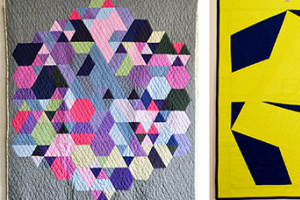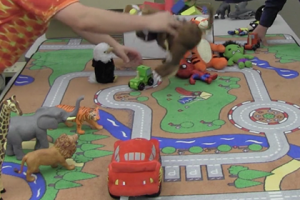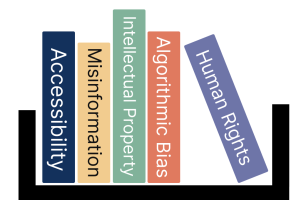|
Code Crafters is a project that investigates the connection between quilting and computational thinking, via design-based research to develop instructional workshops for an adult population of quilters.  |
The goal of this NASA funded project is to conduct human computer interaction experiments to study how the diminishment of irrelevant visual and auditory information, via Augmented Reality, in a high stress environment can help a user focus more effectively on task performance. Specifically we are studying methods of diminishing and enhancing reality for crew members on the International Space Station that could help them perform complex medical tasks in high stress emergency situations. |
Utilizing augmented reality to support workers and trainees in the performance of complex cognitive and motor tasks |
The Cognitive Empowerment Program seeks to empower fellows with MCI and their care partners and care providers. The home plays an important role in empowerment. |
|
A digital interface that supports musical expression for novice users. The users need not possess any prior musical knowledge. The system will support collaboration by letting users of different experience levels make music together. The collaborative aspect of the system will help reducing stress levels of users and will therefore be encouraged and incentivized possibly through a reward system. |
Collective sensing is a novel mobile technology which aims to build better human networks. It uses multiple informants to collect information regarding an individual in a variety of contexts with the goal of creating a more holistic story. |
Therefore, our research study aims to understand the thought processes, behaviors, and concerns users have when they encounter health information on Youtube to facilitate users' ability to recognize false information. |
This project is developed through an ongoing collaboration with the Historic Westside Cultural Arts Council. Through a series of design workshops and public events, we are co-designing mobile and social technologies to help cultivate a shared community identity to support local civic engagement. By working directly with community members, we are able to build technology platforms suited to their specific needs and which amplify their values and concerns as the community goes through significant changes. |
|
Social media has changed how individuals cope with health challenges in good and bad ways. Especially for stigmatized mental health conditions like depression, groups and communities offer positive outcomes for those suffering from mental illness. However, in some mental health communities, individuals promote deliberate self-injury, disordered eating habits, and suicidal ideas as acceptable choices rather than dangerous actions. |
Pretend play helps children develop a wide range of cognitive skills and is, therefore, a critically important skill for kids to learn. Some children, such as those on the Autism Spectrum, have difficulties engaging in pretend play. This project seeks to understand and model what constitutes successful pretend to play in order to design and implement technologies to support and facilitate highly engaging pretend to play. The exact nature of that intervention is an open question, and we are exploring several exciting options including a robotic play partner and an immersive virtual play world.  |
Social movement organizing is becoming increasingly dependent on communication technologies. How can CSCW systems support grassroots organizations in facilitating collective action through democratic participation? In this paper, we study Science for the People-Atlanta, a social movement organization dedicated to build a grassroots movement around science activism. We used action research, both participating in the organization and studying it. Further, we interviewed ten active members of the organization. |
Ethics in the undergraduate computing curriculum is gaining increasing attention. Computing ethics content involves topics such as algorithmic bias, misinformation, law and regulation, and accessible design. Previous work in this space includes novel activities to present ethics content in the curriculum, discussion of embedding ethics topics into technical courses, and an overview of what is currently being taught. Our research team is conducting a survey of faculty who teach undergraduate computing courses, regardless of whether they currently teach ethics content or not. Through the survey,  |
|
Connected living is a fast-growing intersection of mobile, wearable, home, community, car and other technologies to assist individuals in accomplishing more seamless interactions and goals in daily life. The Aware Home is the perfect environment for exploring how smart-home systems may be advanced in the future. Student design projects are an opportunity for students to research the preferences of the end users and design prototype systems that will inform this future. |
Connected living is the fast-growing intersection of mobile, wearable, home, community, car and other technologies to assist individuals in accomplishing more seamless interactions and goals in daily life. Mobility and cloud computing are two pillars of growth that has brought about significant changes in industry. Cloud computing, big data, mobility and low-cost sensors are driving the internet of things and connected industries, and the internet of things is forcing transformation and innovation across the connected home, connected workplace and connected city. |
Providing a platform for social media influencers and small business owners to foster a better connection and collaboration |


